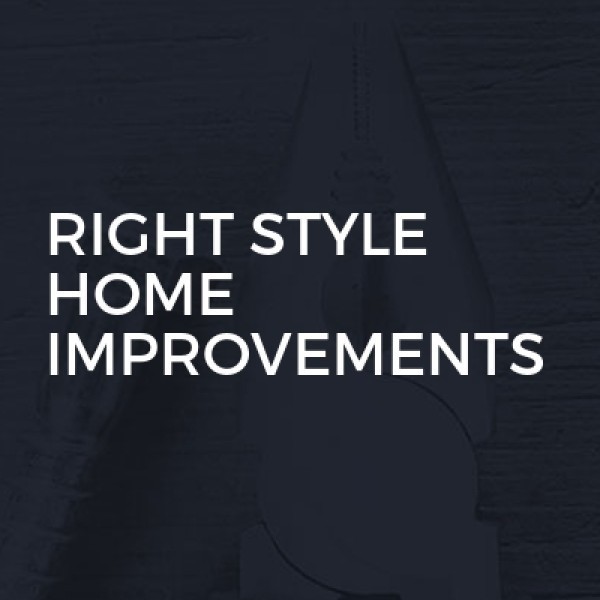Garage Conversions in Haverhill
Search Garage Conversions in places nearby
Understanding Garage Conversions in Haverhill
Garage conversions in Haverhill have become a popular trend, offering homeowners an innovative way to maximise their living space without the need for a full-scale extension. This article delves into the various aspects of converting a garage, providing a comprehensive guide for those considering this home improvement project.
The Appeal of Garage Conversions
Garage conversions are an attractive option for many homeowners in Haverhill. They offer a cost-effective way to increase living space, enhance property value, and adapt to changing family needs. With the right planning and execution, a garage conversion can transform an underutilised space into a functional and stylish part of your home.
Cost-Effectiveness
One of the primary reasons homeowners opt for garage conversions is the cost-effectiveness compared to building an extension. Converting an existing structure typically requires less investment in materials and labour, making it a budget-friendly option for many.
Increased Property Value
A well-executed garage conversion can significantly boost the value of your property. By adding usable square footage, you not only enhance your living space but also make your home more appealing to potential buyers.
Adaptability
Garage conversions offer flexibility in design and function. Whether you need an extra bedroom, a home office, or a playroom, a garage conversion can be tailored to meet your specific needs.
Planning Your Garage Conversion
Before embarking on a garage conversion project, careful planning is essential. This involves understanding the legal requirements, setting a budget, and designing the space to suit your needs.
Legal Requirements
In Haverhill, as with other parts of the UK, garage conversions may require planning permission or building regulations approval. It's crucial to check with your local council to ensure compliance with all legal requirements.
Setting a Budget
Establishing a realistic budget is a key step in planning your garage conversion. Consider costs such as materials, labour, and any necessary permits. It's also wise to set aside a contingency fund for unexpected expenses.
Design Considerations
When designing your garage conversion, think about how the space will be used. Consider factors such as lighting, insulation, and access to ensure the converted space is comfortable and functional.
Executing the Garage Conversion
Once the planning phase is complete, it's time to execute the conversion. This involves hiring the right professionals, managing the construction process, and ensuring the project stays on track.
Hiring Professionals
For a successful garage conversion, it's important to hire experienced professionals. This may include architects, builders, and electricians. Check references and reviews to ensure you're working with reputable experts.
Managing the Construction Process
Effective project management is crucial to keep the conversion on schedule and within budget. Regular communication with your contractors and frequent site visits can help ensure the project progresses smoothly.
Ensuring Quality and Compliance
Throughout the construction process, it's important to ensure that all work meets quality standards and complies with building regulations. This may involve inspections by local authorities or independent assessors.
Transforming Your Garage Space
The transformation of your garage into a functional living space is an exciting part of the conversion process. This involves interior design, furnishing, and adding personal touches to make the space your own.
Interior Design
Consider the overall aesthetic you want to achieve in your converted space. Choose colours, materials, and finishes that complement the rest of your home while reflecting your personal style.
Furnishing the Space
Select furniture that fits the purpose of the room and maximises the available space. Multi-functional furniture can be particularly useful in smaller areas.
Adding Personal Touches
Personalise your new space with artwork, decor, and accessories that reflect your personality and taste. This will make the converted area feel like a natural extension of your home.
Common Challenges and Solutions
While garage conversions offer many benefits, they can also present challenges. Understanding these potential issues and how to address them can help ensure a successful project.
Dealing with Limited Space
Garages are often smaller than other rooms in the house, which can limit design options. To maximise space, consider built-in storage solutions and clever layout designs.
Addressing Insulation and Heating
Garages are typically not designed for living, so insulation and heating are important considerations. Proper insulation and the installation of efficient heating systems can make the space comfortable year-round.
Ensuring Adequate Lighting
Garages often lack natural light, so it's important to plan for adequate lighting. Consider a combination of overhead lights, task lighting, and accent lighting to create a bright and inviting space.
Case Studies: Successful Garage Conversions in Haverhill
Looking at successful garage conversions in Haverhill can provide inspiration and insight into what can be achieved. These case studies highlight different approaches and outcomes, showcasing the versatility of garage conversions.
Case Study 1: The Home Office
One homeowner transformed their garage into a modern home office, complete with built-in desks, ample storage, and a sleek design. This conversion allowed them to work from home comfortably and efficiently.
Case Study 2: The Guest Suite
Another family converted their garage into a cosy guest suite, featuring a bedroom, bathroom, and small kitchenette. This provided a private space for visitors and increased the home's functionality.
Case Study 3: The Playroom
A young family turned their garage into a vibrant playroom for their children. With bright colours, durable flooring, and plenty of storage for toys, this space became a favourite spot for the kids to play and learn.
Environmental Considerations
Garage conversions can also be an opportunity to incorporate environmentally friendly practices. By choosing sustainable materials and energy-efficient systems, you can reduce your carbon footprint and create a greener home.
Sustainable Materials
Opt for eco-friendly materials such as reclaimed wood, recycled metal, and low-VOC paints. These choices can help minimise the environmental impact of your conversion.
Energy Efficiency
Incorporate energy-efficient systems such as LED lighting, high-efficiency heating, and smart thermostats. These can reduce energy consumption and lower utility bills.
Water Conservation
If your conversion includes plumbing, consider installing water-saving fixtures such as low-flow toilets and faucets. These can help conserve water and reduce your environmental impact.
Frequently Asked Questions
What is the average cost of a garage conversion in Haverhill?
The cost of a garage conversion in Haverhill can vary depending on the size of the garage and the complexity of the project. On average, homeowners can expect to spend between £10,000 and £20,000.
Do I need planning permission for a garage conversion?
In many cases, garage conversions do not require planning permission, but it's important to check with your local council to confirm. Building regulations approval may still be necessary.
How long does a garage conversion take?
The duration of a garage conversion can vary depending on the scope of the project. On average, it takes between 4 to 6 weeks to complete a garage conversion.
Can I convert a detached garage?
Yes, detached garages can be converted, but they may require additional considerations such as access and utilities. It's important to plan carefully and consult with professionals.
Will a garage conversion add value to my home?
A well-executed garage conversion can add significant value to your home by increasing usable space and enhancing its appeal to potential buyers.
What are the most popular uses for converted garages?
Common uses for converted garages include home offices, guest suites, playrooms, and gyms. The best use depends on your specific needs and lifestyle.
Final Thoughts on Garage Conversions in Haverhill
Garage conversions in Haverhill offer a practical and cost-effective way to enhance your home. By carefully planning and executing the project, you can transform an underutilised space into a valuable asset that meets your family's needs. Whether you're looking to create a home office, guest suite, or playroom, a garage conversion can provide the perfect solution. With the right approach, you can enjoy a stylish and functional new space that adds value to your property and improves your quality of life.













